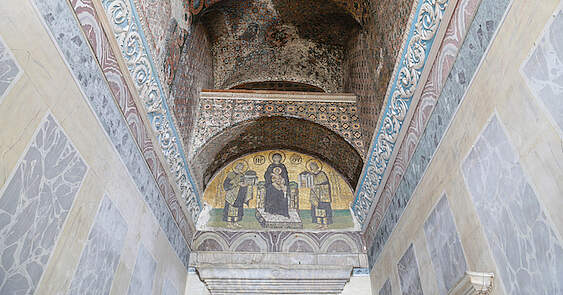
I’ve sometimes had to explain to non-Catholics that we do not worship the Virgin Mary but rather pray to her with deep veneration.
Manchester University’s John Rylands Library is home to a scrap of Egyptian papyrus that experts date to about 250 AD and which contains the words in Greek, “Mother of God (Theotokos) hear my supplications: suffer us not to be in adversity, but deliver us from danger.” This is an early version of the prayer which Catholics know as “Sub tuum praesidium” or “Beneath thy protection.” This tiny fragment shows that by the middle of the 3rd century, Christians were seeking Mary’s protection. Writing in the same period, the Church Father Origen taught that on the Cross, Jesus entrusts the care of all his disciples to his Mother..
For our Catholic faith, paying due homage to the Virgin is not an optional extra that can be passed over.
In the 8th century, St. John of Damascus wrote that the title Theotokos “contains the whole mystery of the Incarnation.” Addressing Mary as Mother of God affirms that Jesus was both human (as his mother truly gave birth) and God. The Orthodox theologian Father Georges Florovsk wrote that “to ignore the Mother means to misinterpret the Son.” Without a Mother, there would be no Son. Without the Incarnation, there would be no salvation.
Before the Second Vatican Council, Mariology and Marian devotional life were flourishing enterprises that included Marian processions, sodalities, May crownings, and congresses. The National Shrine of the Immaculate Conception in Washington, D.C., was completed in 1959 thanks to hundreds of thousands of small donations from across the US.
[...] Mariologists know the phrase “ubi Maria, ibi ecclesia” — “where Mary is, so is the Church.” Wherever the Blessed Mother is loved and praised and her protection sought, the Church is strong.
[...] Where Mary is, so too is the Church. And wherever the Church is gathered in prayer, as in Acts 1:14, the mother of the Church continues to be there, quiet and faithful as ever. May she continue to bring together our warring world, “suffer us not to be in adversity, and deliver us from danger.”
Fr. Dorian Llywelyn, SJ. May 18, 2022